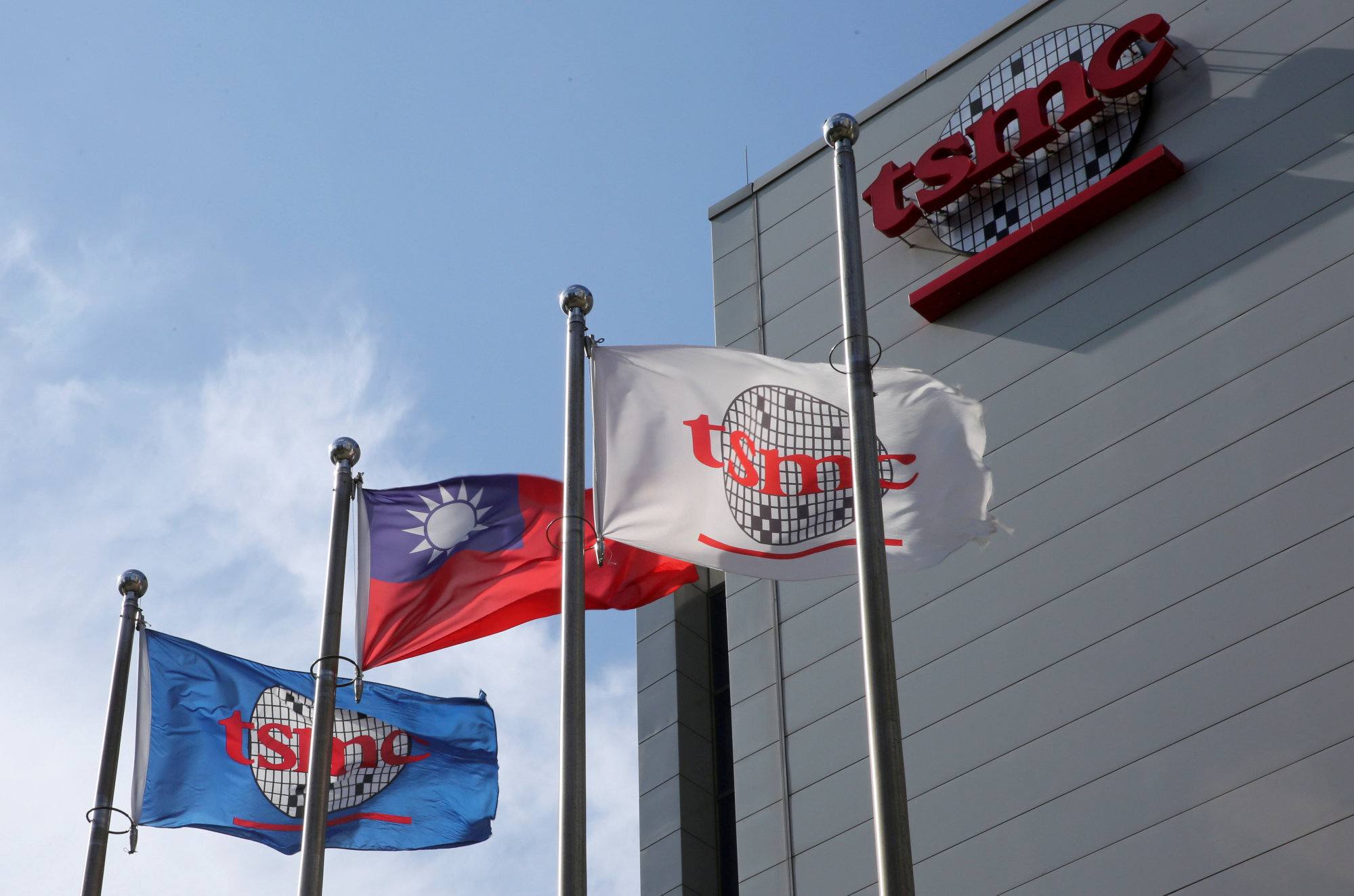
US-China tech war: Beijing can ‘stay cool’ on Biden’s US semiconductor push, analysts say
- Biden on Monday highlighted the need for the US to increase spending on domestic chip production
- Analysts say bigger problem for China is current ban on export of advanced US-origin technology
Biden on Monday highlighted the need for the US to increase spending on semiconductor manufacturing, making a reference to China, in a virtual meeting with tech and auto executives, including Alphabet CEO Sundar Pichai, Intel CEO Pat Gelsinger, General Motors CEO Mary Barra, Ford CEO Jim Farley as well as delegates from Taiwan Semiconductor Manufacturing Company (TSMC) and Samsung.
“I’ve been saying for some time now, China and the rest of the world is not waiting, and there’s no reason why Americans should wait,” Biden said.
“We’re investing aggressively in areas like semiconductors and batteries; that is what they’re doing and others, so must we.”

However, the immediate impact on China from Biden’s semiconductor initiative, which lists chips and wafers as new infrastructure, is seen as limited by analysts, who say the most pressing problem for the country is the fact that it has been denied access to advanced US-origin technologies.
Supercomputer sanctions on China begin to bite as TSMC said to suspend chip orders
William Deng, an analyst with UBS in Hong Kong, said Beijing can afford to “stay cool” on Biden’s initiative because the country has already drafted its own strategy, including state-backed spending on semiconductors, technology-driven growth as well as efforts to push new technological breakthroughs.
Although Biden’s semiconductor drive, prompted in part by a current shortage of chips and rising US concerns about competition from China, may encourage US chip makers to boost capital spending, it will nevertheless take time for chip production to shift from Asia to North America.
“In the near term, the key challenge for China will still be export restrictions [implemented by the US],” Deng said. “In the longer term, the key question is whether China can make breakthroughs in bottleneck technology areas.”
Xie Ruifeng, an analyst with Shanghai-based semiconductor research firm ICwise, agreed that the immediate impact on China would be limited. “The dangers [for China] still derive from the lack of access to ‘choke point’ technologies,” Xie said.
Xie added that the US initiative would not affect China’s onshore fabs, such as Semiconductor Manufacturing International Corporation (SMIC) in Shanghai, as the mainland plants – although still lagging behind Taiwan and South Korean peers in producing the most advanced chips – are currently running at full capacity to meet production demand from China’s domestic chip designers.
“Production capacity at Chinese foundries can barely meet the booming demand from a fledgling domestic IC design industry which has grown at an annual rate of 20 per cent over the past few years, especially amid an ongoing chip shortage where capacity at fabs has been overbooked by smartphone markers,” Xie said.
“Even if US chip designers such as Qualcomm move their production back to the US, domestic IC design companies can help make up the loss.”
Joe Biden’s US$715 billion defence spending request to counter ‘top challenge’ from China
Stewart Randall, head of electronics and embedded software at consultancy Intralink, said the US policy of showering money on big companies would probably not achieve an immediate boost in semiconductor capacity and the final result will “depend on how they go about it”.
Meanwhile, changes are looming for a global semiconductor industry that currently relies heavily on plants in Taiwan and South Korea to produce the world’s most advanced chips.
Foundries in Taiwan, South Korea and Japan have a dominant position in the global semiconductor supply chain, controlling around a combined 56 per cent of the global wafer manufacturing market, compared with a 16 per cent share for mainland China, according to a recent report by Boston Consulting Group and the Semiconductor Industry Association.
The US share of global semiconductor manufacturing, meanwhile, has dropped to about 12 per cent currently from 37 per cent in 1990 after a move by US chip firms to outsource their production needs to Asian countries to save costs.
Arisa Liu, a research fellow at the Taiwan Institute of Economic Research, said Biden’s initiative would strengthen US chip-making in future but the self-ruled island of Taiwan, home to leading global foundries such as TSMC, remains the go-to manufacturing solution for the current chip shortage issues.
“A build-up of capacity will take time,” Liu said. “In the long run, competition can be ramped up for foundries in both Taiwan and mainland China … and [US action] could slow the pace at which global suppliers build factories in China,” she said.
TSMC gears up for mass production of 3-nanometre chip
However, the US remains a leading player in semiconductor research and development, such as electronic design automation (EDA) – which can take years to develop – while US tools and equipment are often essential for fabs to operate effectively.
And Washington has already ruled that no chip plant using US-origin technologies can make chips for blacklisted companies such as smartphone and network gear maker Huawei Technologies Co. For example, TSMC has already had to suspend supplies to Huawei.
These US restrictions are one factor behind the current chip shortage because the trade bans have damaged “trust” in the global value chain, according to Eric Xu Zhijun, a vice-chairman of Huawei, which is struggling to survive due to the aggressive US action.
Xu said at a conference on Monday that the US sanctions against Huawei had triggered panic stockpiling by businesses along the value chain and zero inventories had now been replaced by stockpiles of three months, six months and even longer in some cases.
Additional reporting by Zhou Xin


